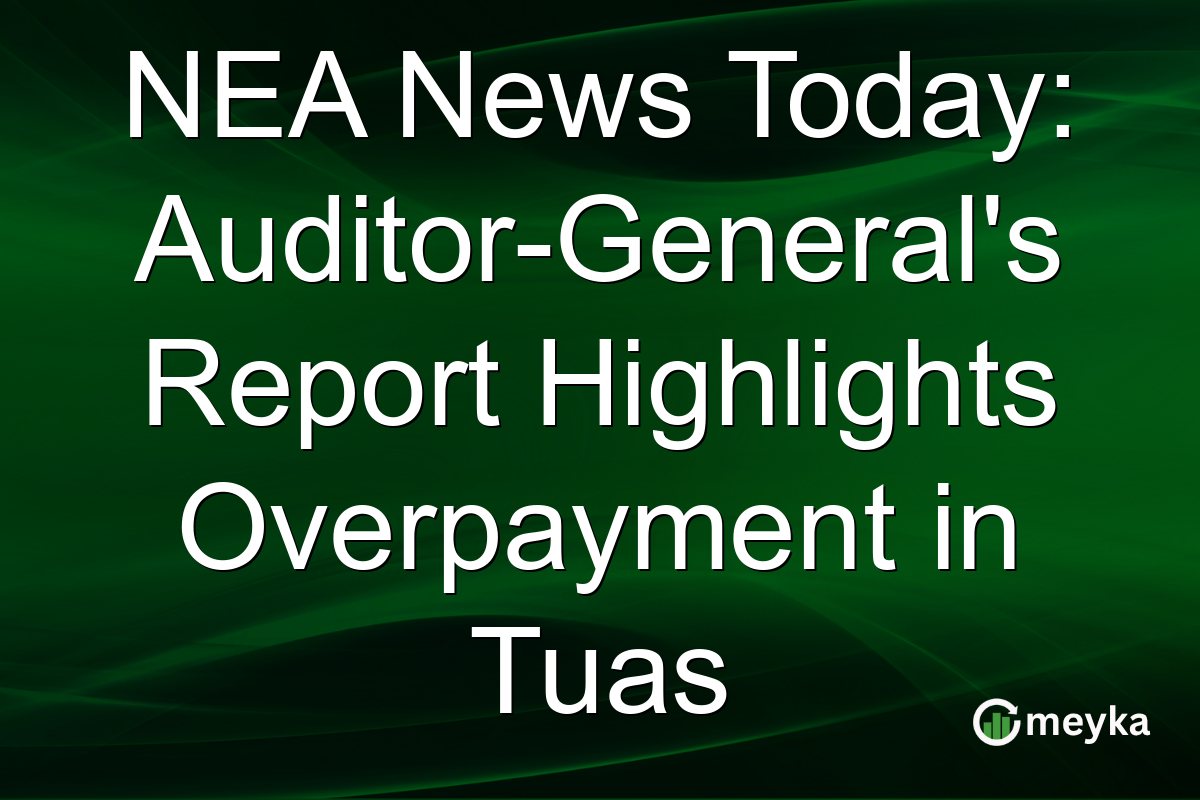NEA News Today: Auditor-General’s Report Highlights Overpayment in Tuas
In the latest financial scrutiny, the Auditor-General’s report has revealed significant financial lapses within Singapore’s National Environment Agency (NEA), specifically pointing to an overpayment of $0.53 million to a partner in the operation of a waste-to-energy plant known as TuasOne. This revelation highlights critical lapses in financial oversight concerning project financial models, pointing to a systemic issue that requires thorough investigation and resolution.
Background on the Overpayment Issue
The Auditor-General’s Office conducted a comprehensive review of NEA’s financial practices, uncovering a substantial overpayment error. Specifically, the financial model used to determine payments for the TuasOne project was not updated adequately, resulting in the NEA overpaying $0.53 million between December 2021 and January 2025. This represents a significant lapse in responsibility and highlights the need for improved financial controls. This shows how crucial it is for government agencies to adhere strictly to updated financial models to prevent such costly errors. The lapse uncovered is not just about financial loss but also about accountability and public trust in state-run agencies.
Auditor-General Report Findings
According to the Auditor-General report, several factors contributed to the overpayment issue. The primary reason was the agency’s failure to revise its existing financial model for the TuasOne project, leading to discrepancies in the payment amounts. Additionally, the report highlighted a lack of robust oversight mechanisms, which made it difficult to catch the error earlier. These findings underscore the importance of regular audits and the need for adherence to financial protocols within governmental operations. More insights from the report can be found here: read more.
Impact of Financial Lapses on NEA’s Operations
The financial lapses at NEA have not just a monetary impact but a reputational one as well. The overpayment to the TuasOne project partner, while significant in monetary terms, also reflects gaps in NEA’s financial governance. For investors observing governmental operations, such lapses indicate potential inefficiencies. It raises questions about how funds are managed within state projects and whether there are similar vulnerabilities in other projects managed by NEA or related agencies. The overpayment incident serves as a call to action for NEA and similar agencies to strengthen financial oversight mechanisms and ensure all project contracts are adequately monitored.
Final Thoughts
The NEA overpayment at TuasOne highlights significant challenges in financial oversight within governmental agencies. It underlines the necessity for stringent financial controls and timely audits to prevent such oversights in the future. Stakeholders, including investors and the public, will be watching closely to see how NEA addresses these lapses and reinforces its financial governance framework. This incident also serves as a reminder of the importance of transparency and accountability in managing public funds. By addressing these issues, the NEA can restore confidence and demonstrate its commitment to efficient, sustainable operations. Leveraging platforms like Meyka for real-time financial insights can further aid in enhancing project controls and preventing future financial discrepancies.
FAQs
The NEA overpaid $0.53 million to a project partner at the TuasOne waste-to-energy plant. This overpayment occurred due to outdated financial models used for payment calculations.
The report revealed that the NEA failed to update its financial model for the TuasOne project, leading to a $0.53 million overpayment. It also pointed out the need for stronger financial oversight and regular audits.
The NEA is expected to enhance its financial governance framework, ensuring regular updates to financial models and implementing stronger oversight mechanisms to prevent future overpayments.
Disclaimer:
This is for information only, not financial advice. Always do your research.






